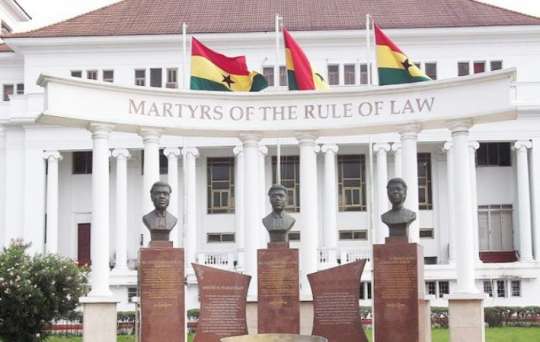Published
6 years agoon
By
Frimpong
The Supreme Court of Ghana in the The Republic v Eugene Baffoe-Bonnie and 4 Others (the NCA case) held that on a true and proper interpretation of article 19 (2) (e) and (g) of the 1992 Constitution, an accused person had the right to be given adequate time and facilities for the preparation of his defence. The court also held that an accused person was entitled to facilities to examine in person or by his lawyer, the witnesses called by the prosecution and to obtain the attendance and carry out the examination of witnesses on the same condition as those applicable to witnesses called by the prosecution.
In line with the decision in the NCA case, Her Ladyship the Chief Justice of Ghana has issued a practice direction for disclosure and case management in criminal proceedings which came into force on the 1st of November, 2018. The direction applies to both summary trials and trials on indictment.
The practice direction restates some of the existing procedures required in the conduct of criminal trials. Among these are the reading and explanation of the charge/indictment to the accused person(s) in their language of choice; disclosure of the names and addresses of all witnesses the accused persons intend to call; and rules relating to the plea of alibi by the accused person in his defence.
But significantly, the practice directions makes some new introductions to the conduct of criminal proceedings. These have been outlined below:
1. Disclosure by the Prosecution
Prior to the decision in the NCA case, the Prosecution were enjoined to file and serve on the Accused person or his Counsel the charge sheet/indictment and the cautioned statements of the accused person. Matters requiring disclosure now include the following: all witness statements made to the Police and other law enforcement or investigative bodies by persons who may or may not be called upon to testify for the Prosecution at the trial, any documents in possession of the Prosecution which are relevant to the case and which the Prosecution may or may not tender at the trial, photographs of any real evidence (objects) in possession of the Prosecution which are relevant to the case and which the Prosecution may or may not tender at the trial, such as guns, cutlasses, knifes, etc., any other materials in possession of the Prosecution which are relevant to the case including audio, video and other electronic recordings as well as any unused materials which may assist the Accused person in the preparation of his defence, any exculpatory evidence in possession of the Police and other law enforcement or investigative bodies (the Prosecution is under an obligation to inquire from the relevant law enforcement or investigative bodies the existence of such evidence, procure and preserve same for disclosure). Where the nature of the material is such that it cannot conveniently be delivered, the Prosecution shall afford the Accused person or his Counsel access to such material. Where before making disclosure, the Prosecution require an undertaking of non-disclosure by the Accused person for the protection of third parties or the public interest, the Accused person shall provide such undertaking before the disclosure is made.
2. Witness Statements
The Practice Direction, on page 6, makes provision for witness statements which must be filed before the case management conference and may be tendered as the evidence in chief of the witness subject to the agreement of the parties. Both the Accused person and the Prosecution may file witness statements which must be served at least two clear days before the case management conference.
3. Case Management Conference (CMC)
Prior to the introduction of the CMC, the court under section 198(6) of Act 30 had only to give directions as to the time, place and mode of trial as part of the procedures before trial. With the introduction of the CMC which is to be attended by the Prosecution, the Accused person and his counsel, the court may determine if the case before it is amenable to amicable settlement. If the case is not amenable to amicable settlement, the court shall proceed to ascertain whether disclosures have been made, if further disclosures are required, whether any witnesses have special requirements and whether the Prosecution/Defence wishes to apply for leave to amend any Witness Statement or rely on any further document(s). The court shall also hear any objections to the admissibility of any disclosed material as well as pending applications, and thereafter fix a firm date for trial to commence.
The overriding objective for the practice direction is to ensure that all criminal cases are resolved fairly, justly, efficiently and expeditiously. Until law reforms are made to bring criminal legislations in line with recent Supreme Court decisions and constitutional interpretations, the practice direction is and shall continue to be a guide in the resolution of criminal cases in Ghana.

























